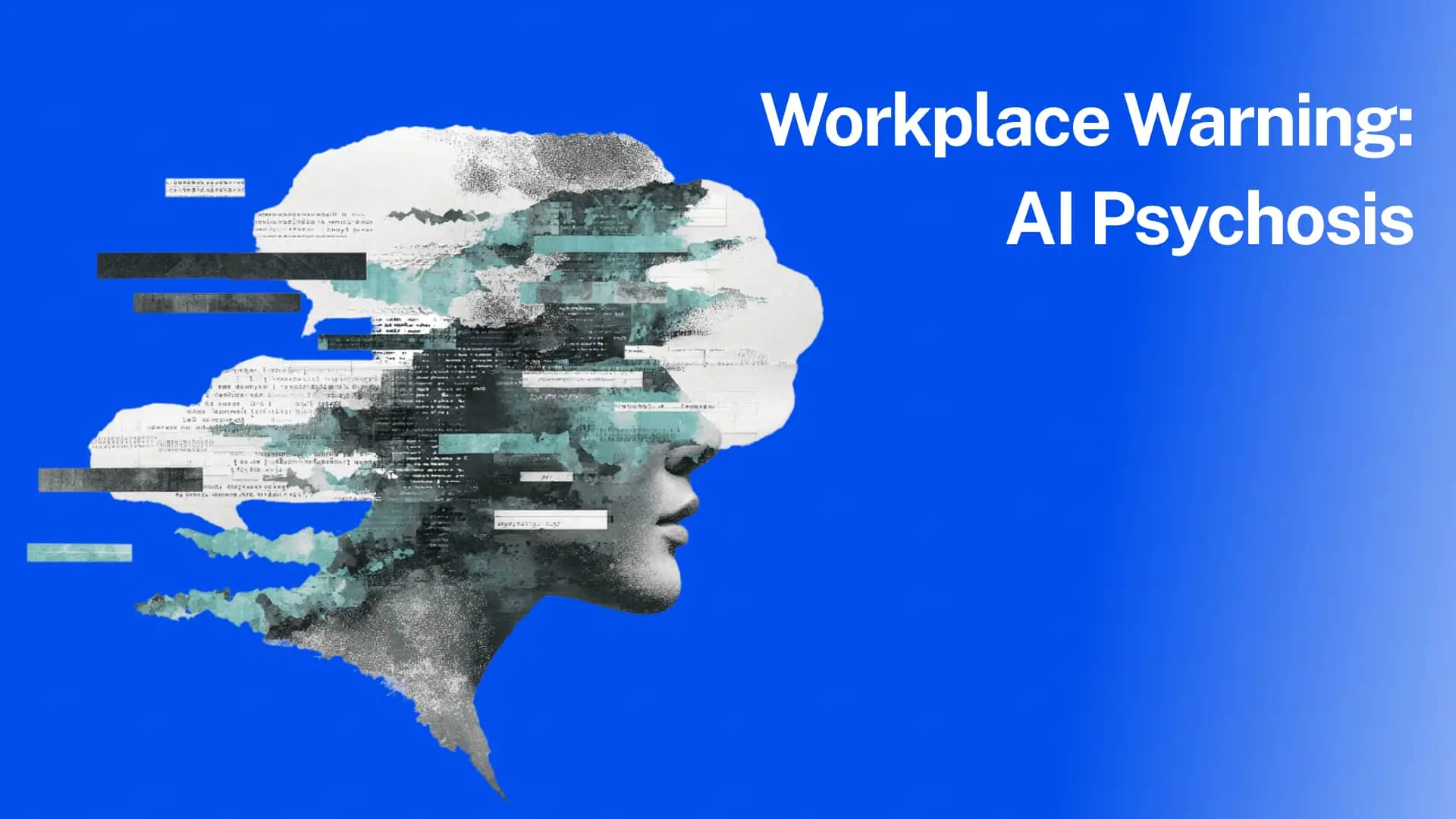"If HR is supposed to be the champion of employees, why does everyone seem to hate us?"
This provocative question, prompted by a recent viral New York Times article, has sparked intense debate.
I analyzed over 2,000 comments to understand where people stand on this question.
One thing is for sure: opinions about HR's role are deeply divided.
Some view it as a necessary advocate for employees, while others see it as a tool of management, out of touch with worker needs.
Whether you’re in HR or on the business ‘side,’ the trust and effectiveness of your HR team are not just HR issues—they directly impact any company’s culture, productivity, and bottom line.
So, let’s dive in.
So, Human Resources Is Making You Miserable?
As you likely will have seen, the recent New York Times article "So, Human Resources Is Making You Miserable?" highlights the increasing dissatisfaction with HR departments among employees and HR professionals.
According to the article, many employees feel that HR is inherently biased toward management, leading to significant trust issues and a perceived lack of advocacy for employee needs.
This sentiment is echoed by Hebba Youssef, Chief People Officer at Workweek and host of the “I Hate it Here” podcast, who was featured for the article and stated:
“People in H.R. tend to be very compassionate, very empathetic, but a lot of employees look at us as inherently evil.” – Hebba Youssef, Chief People Officer at Workweek and host of the “I Hate it Here” podcast
The article also details the challenges HR professionals face, particularly since the pandemic.
Kyle Lagunas, a former HR executive at General Motors, describes the post-pandemic era as turning a difficult job into an almost impossible one:
“For years, we have been fighting fires with cans of gasoline, and now, after literally giving everything we could, it’s like, ‘Oh, thanks for everything, but don’t make too much work for me. I’m the business, and you’re H.R.’” – Kyle Lagunas, former HR executive, General Motors
This dual role—protecting the company while advocating for employees—has left HR departments struggling to balance these conflicting priorities, contributing to high turnover rates within the field. LinkedIn data from 2022 showed that HR had the highest turnover rate of any job it tracked.
The increase in remote work, pay transparency issues, and diversity initiatives have only added to the complexity of their roles.
As the article details, the Unleash conference in Las Vegas, attended by 4,000 HR professionals, became an unexpected platform for expressing these frustrations.
The conference revealed a consensus among HR leaders: their department needs to undergo significant changes to adapt to the new realities of the workplace.
Common Concerns about the State of HR
So, that’s what Unleash attendees are thinking.
How about the rest of the world?
To answer that question, I analyzed over 2,000 comments on the original article and three viral LinkedIn posts: one from Hebba Youssef herself, this post from Future Work alumn and ‘HR godfather’ Dave Ulrich, and a (surprisingly) since-deleted one from another Future Work interviewee, HR Tech guru Josh Bersin.
When we look at the LinkedIn comments, it’s largely the HR community responding, with five clear themes:
- Rewarding Aspects of HR: Commenters highlight HR work's fulfilling and compassionate nature, emphasizing its positive impact on employees and company culture.
- HR Burnout: At the same time, many employees share their experiences of experiencing burnout due to administrative overload and the challenge of balancing strategic and tactical responsibilities.
- Strategic Importance of HR: Many comments focus on the critical role HR plays as a strategic partner in business, underscoring its influence on organizational success and alignment with business goals.

- Employee Perception and Distrust: On the other hand, there is a significant focus on the perception problem HR faces, acknowledging that employees often view HR as aligned more with management than their interests.
- Evolution and Adaptation of HR: People note the evolving nature of HR, with a shift towards more strategic consulting roles and the need for HR to adapt to changing business environments and employee expectations.
Looking at the New York Times comments, however, where more employees are present, we see much more of a focus on the “HR is in bed with management”:
- Distrust of HR: The predominant theme in the comments is a strong distrust and negative perception of HR. Many commenters express that HR primarily serves management and doesn’t have employees' best interests at heart.

- HR as Company Protection: One source of discontent specifically is that many believe that HR exists to protect the company from legal issues and liabilities rather than to support employees.
- Ineffectiveness and Incompetence in HR: There is a recurring criticism of HR's effectiveness and competency, with many recounting personal experiences of HR's failure to support or provide adequate services.
A Call for Change
To regain trust and relevance, HR may need to transform indeed.
Commenters and experts I’ve spoken to for Future Work have come to similar conclusions about potential directions for change:
1. Getting Closer to the Business
While some HR departments have evolved into strategic partners, many are still stuck in administrative and compliance roles.
This stagnation is partly due to organizational leadership not fully understanding or leveraging HR’s potential. As a result, HR is often seen as a cost center rather than a strategic asset.
Anthony Onesto, Chief People Officer at Suzy, emphasized in an interview with me that HR must get closer to the business:
“When HR gets closer to the business, wonders happen. HR can then steer initiatives and ensure that people have interesting work to do”.
2. Separating Compliance and Advocacy Roles
To build trust, some argue that we should clearly distinguish between compliance and employee advocacy roles.
Compliance roles should ensure the organization adheres to legal and regulatory standards, while advocacy roles should prioritize employee well-being and development.
As leadership thinker Amy Leschke-Kahle told me recently:
“We should be separating functions like benefits, payroll, and compliance clearly from the talent kind of amplification part, the coaching, the development, and the things organizations do to help our employees do more of their own unique best work.” – Amy Leschke-Kahle
A commenter, Daisy Varghese Spilker, agreed: “I would say - remove the disciplinary actions from HR and put in a compliance/ethics section where HR coordinates with them and bring policies and procedures to treat everyone the same.”
3. Increasing Transparency and Trust
Another way to build trust is by increasing transparency.
As Vanessa Castillo, an HR consultant who’s also quoted in the New York Times article, shares in the comments:
"It's still disheartening that HR is viewed with suspicion. It's a significant hurdle, however one that we must continue to address through transparency, consistency, and genuine care.” – Vanessa Castillo
HR could foster more transparency in its processes and decision-making to bridge the trust gap between employees and HR.
This involves clear communication about policies, decisions, and their rationale.
4. Leveraging Technology
To achieve a better employee experience while increasing transparency, HR departments must leverage technology effectively. Advanced HRIS and AI tools can streamline processes and improve the employee experience.
Unfortunately, bad technology is everywhere.
As one commenter shared: “I talk to a lot of workers whose interactions with HR tend to be poor, especially if they don't feel their basic needs are being met, which can be due to inexperienced or untrained HR teams, outdated or poorly launched technology.”
Q Hamirani, Chief People Officer at Paper, highlighted the role of HR software in our conversation. Not to replace HR (as some people in the article worried about AI recruiting), but to supercharge them:
"In HR, it's always a combination of technology and humans in the loop. From the start, it’s been more like a friend, or a copilot in today's terminology. You have to guide it, and it's more critical and important in the field of HR."
The Bottom Line: Transforming HR
As the future of work continues to evolve, it seems like HR teams and employees agree on one thing: that HR must transform to remain relevant and supportive.
And looking at the many comments from within the industry, many seem ready to take on these opportunities to improve their own roles and the profession.
And as Hebba herself says: “Until the miserable days outweigh the rewarding days, I'll continue doing this work.”
Let’s keep going.
Until next week,
– Daan











